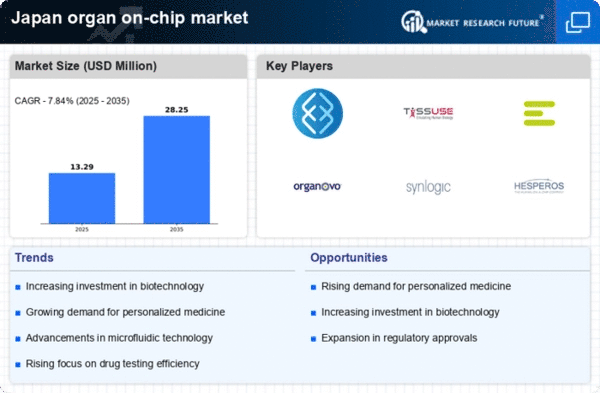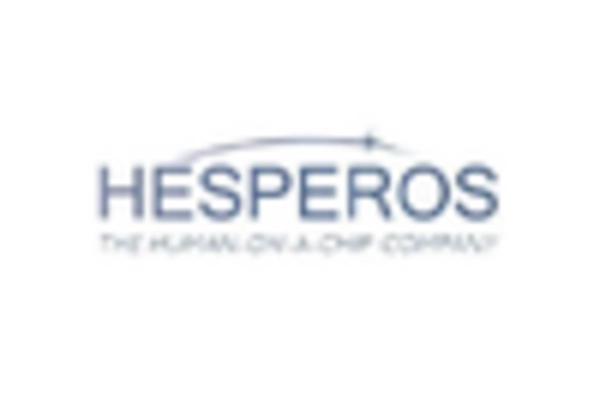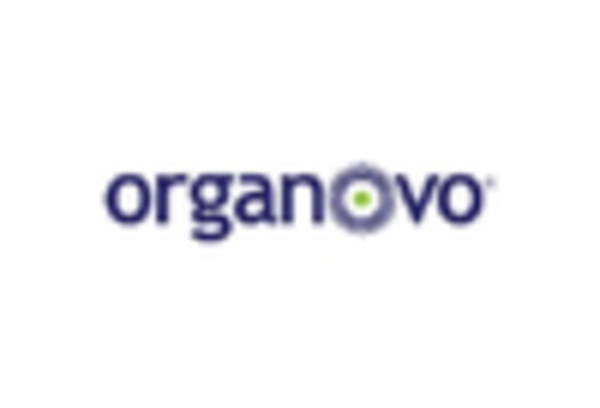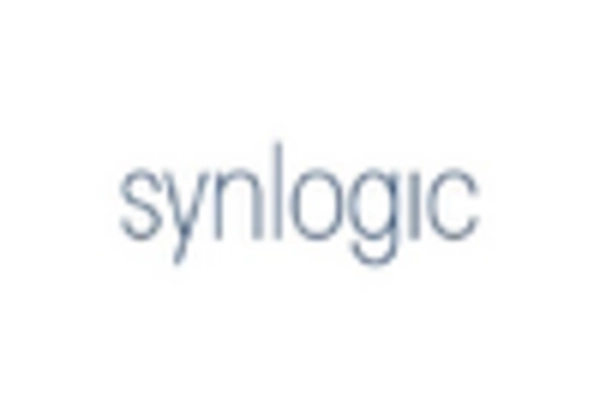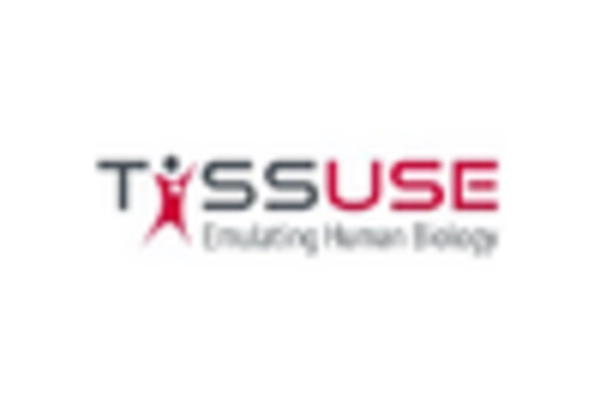Increased Investment in Biotechnology
The organ on-chip market in Japan is benefiting from increased investment in biotechnology. The Japanese government has recognized the potential of biotechnological innovations to drive economic growth and improve healthcare outcomes. As a result, funding for research and development in this sector has seen a substantial rise, with investments reaching approximately $1.5 billion in recent years. This financial support is likely to foster the development of organ-on-chip technologies, as researchers and companies are encouraged to explore novel applications and enhance existing platforms. The influx of capital is expected to stimulate innovation, thereby propelling the organ on-chip market forward in the coming years.
Rising Demand for Personalized Medicine
The organ on-chip market is experiencing a notable surge in demand for personalized medicine. This trend is driven by the increasing recognition of the need for tailored therapeutic approaches that cater to individual patient profiles. As healthcare providers and researchers seek to enhance treatment efficacy, organ-on-chip technologies offer a promising solution by enabling the simulation of human organ responses to various drugs. The market is projected to grow at a CAGR of approximately 15% over the next five years, reflecting the growing investment in personalized healthcare solutions. This shift towards individualized treatment regimens is likely to propel the organ on-chip market forward, as stakeholders recognize the potential of these technologies to improve patient outcomes and reduce adverse drug reactions.
Growing Focus on Reducing Animal Testing
The organ on-chip market is also being propelled by a growing focus on reducing animal testing in Japan. Ethical concerns and regulatory pressures are driving researchers and companies to seek alternative methods for drug testing and toxicity assessments. Organ-on-chip technologies present a viable solution, as they can replicate human organ functions without the need for animal models. This shift aligns with the global movement towards more humane research practices and is likely to enhance the adoption of organ-on-chip systems. As regulatory bodies increasingly endorse these technologies, the organ on-chip market is expected to witness significant growth, reflecting a broader commitment to ethical research methodologies.
Emerging Applications in Disease Modeling
The organ on-chip market is witnessing growth due to emerging applications in disease modeling. Researchers in Japan are increasingly utilizing organ-on-chip technologies to study various diseases, including cancer, cardiovascular disorders, and neurodegenerative conditions. These platforms allow for the investigation of disease mechanisms and the testing of potential therapies in a controlled environment that closely mimics human physiology. The ability to model complex diseases accurately is likely to attract further investment and interest from both academic and commercial sectors. As the understanding of disease processes deepens, the organ on-chip market is poised for expansion, driven by the demand for innovative research tools that can facilitate breakthroughs in medical science.
Advancements in Drug Development Processes
The organ on-chip market is significantly influenced by advancements in drug development processes within Japan. Traditional drug testing methods often fail to accurately predict human responses, leading to high failure rates in clinical trials. Organ-on-chip technologies provide a more reliable alternative by mimicking human organ systems, thus enhancing the predictive power of preclinical studies. This innovation is expected to reduce the time and costs associated with drug development, which can exceed $2.6 billion per drug. As pharmaceutical companies increasingly adopt these technologies, the organ on-chip market is likely to expand, driven by the need for more efficient and effective drug testing methodologies.


